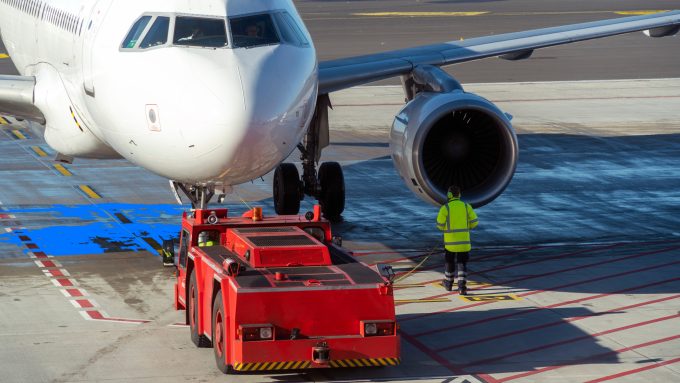
TRIG funding helps delivery drone firm to take off

Think of a drone and chances are you picture a small X-shaped device with four propellers, often used by hobbyists to take video footage of the landscape. But unmanned aerial vehicles come in a host of configurations and sizes.
One of the latest versions is a light cargo drone with a 3m fixed wing that resembles a light aircraft. It can take off like a plane in just 15 metres or vertically like a helicopter, and carry the equivalent of 12 parcels in a container the size of a bathtub.
“It's light, but it's big too,” remarks Etienne Louvet, founder of IONA which has manufactured both hardware and software for the aerial vehicle. Large payloads can be carried, he explains, due to an energy efficient mechanism called a tilt rotor.
“The drone takes off vertically, and then the propellers and motors transition to allow horizontal flight; much like a glider – which uses very little power. We can transport up to 20kg over 100km using 0.9kWh of battery packs, similar to an electric bicycle.”
Funding and support provides salvation
IONA received £28,000 from the Transport Research and Innovation Grants (TRIG) programme in 2022 to fund a feasibility study into developing a payload management system; demonstrating the capacity of an autonomous aircraft for use in logistics.
Testing took place at Cranfield University and following its involvement in TRIG – delivered by Connected Places Catapult on behalf of the Department for Transport – the company ended up with a prototype product with a Technology Readiness Level of five.
“TRIG was a salvation for us, because it helped us overcome the ‘Valley of Death’ between having a good idea and good execution. It's one of the few programmes that can really get things going for early-stage startups involved in research and development.”Etienne Louvet, founder of IONA
“We not only received financial support, but also access to the right people and a degree of added credibility; helping us to push a bit further and demonstrate our next stage of maturity.” Etienne adds that following the TRIG grant, a private investor agreed to invest £150,000 in the technology.
Inspired by logistics challenges during lockdown
Etienne’s idea for a drone delivering large consignments started in France during the pandemic lockdown, while staying with his family in a remote village in Brittany. “Logistics were a nightmare; I saw a postal delivery van arrive every three days, and most of the time it was near empty.
“So I thought about the efficiency of last-mile deliveries which often make a financial loss, emit more carbon emissions than necessary and are very labour intensive.”
Etienne’s background in deep technology and autonomy led him first to think about developing a driverless delivery vehicle; but soon calculated that an autonomous van carrying 60 parcels would still take between three and four hours on rural roads to complete its journey.
He turned his attention to drones, realising that the size of device could be more closely aligned to the size of the package. “This means that with a drone it is never oversized, and you can carry almost as much weight as the drone itself, so it is much more energy efficient.”
IONA is so called after the Scottish island that forms part of Argyll & Bute Council, with whom the company has discussed delivery logistics. Medium-term, Etienne is looking to work with logistics firms to allow them to manage a fleet of drones directly from their transport management systems. Longer-term, his wish is for an autonomous drone delivery network to be established across the UK.
Apply to attend our upcoming TRIG Showcase and Networking event in Birmingham (23 October).
Find out more about the Transport Research & Innovation Grants programme.





